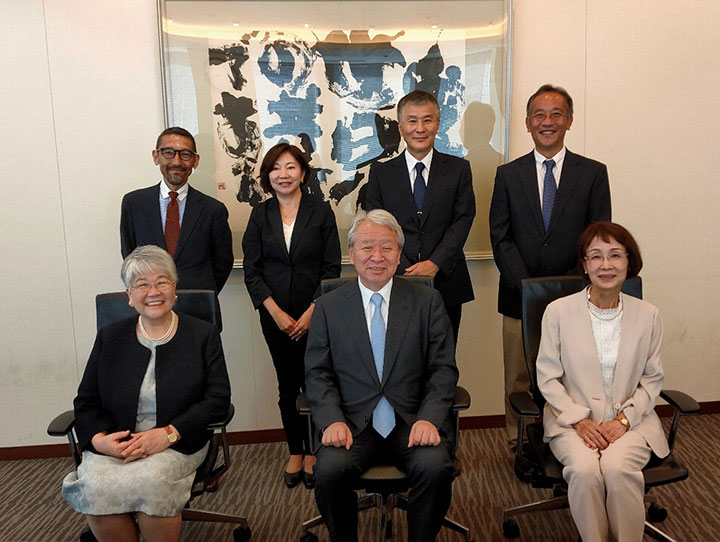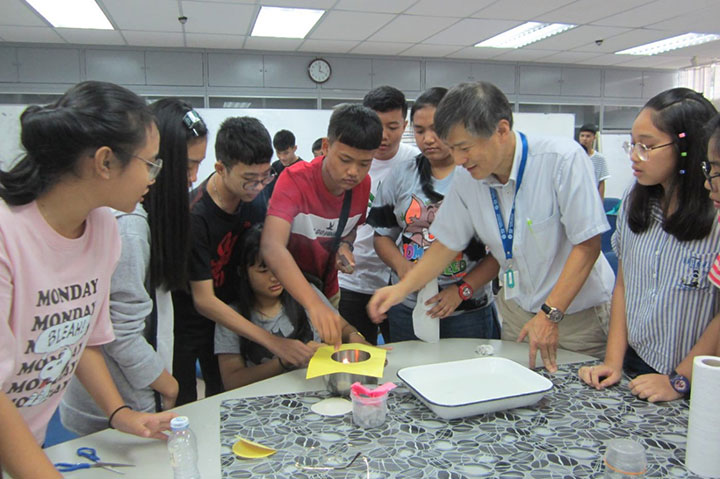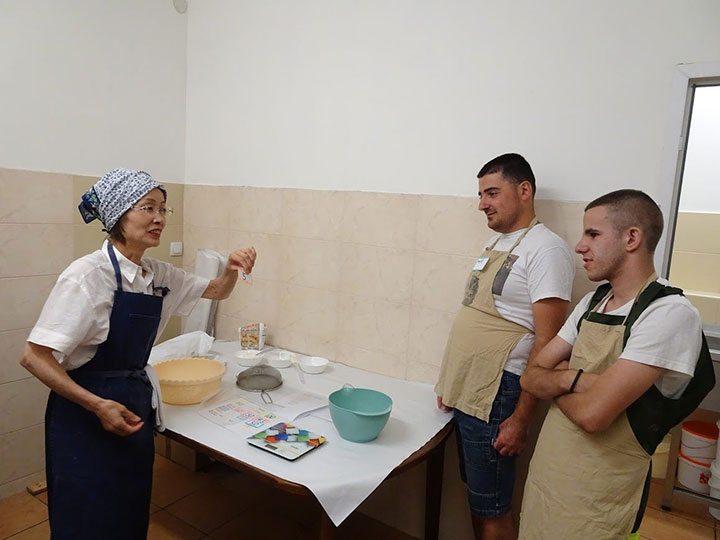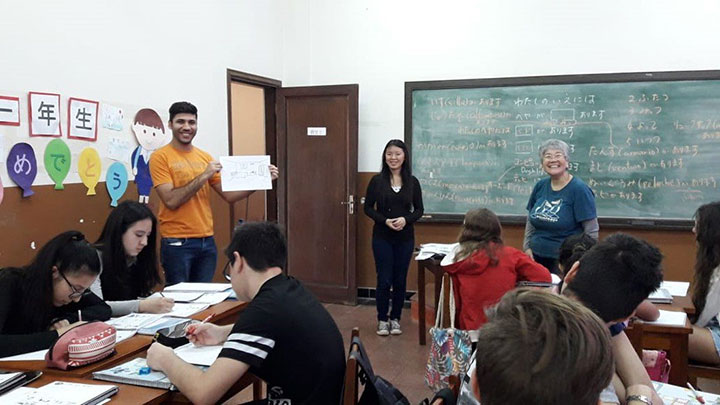Their Majesties the Emperor and Empress of Japan met with returned Japan Overseas Cooperation Volunteers (JOCV) and Japan Overseas Cooperation Volunteers for Nikkei Communities (NJV)
2023.08.03
On July 12, representatives of the Japan Overseas Cooperation Volunteers (JOCV) and Japan Overseas Cooperation Volunteers for Nikkei Communities (NJV) who had returned to Japan had the honor of talking informally with Their Majesties the Emperor and Empress of Japan at the Imperial Palace. During these talks, the JOCV reported on their activities in the foreign countries where they had served. Since the launch of the volunteer initiative in 1965 and continuing to the present, Their Majesties have talked informally with returned volunteers.
The volunteers who returned to Japan this time were affected by the global spread of COVID-19, having to return home temporarily. However, they were able to overcome this obstacle presented by the pandemic and complete their duties by conducting online support activities and capacity building during their waiting period in Japan. What is more, they took advantage of these efforts when they returned to their dispatch countries once again.
On this occasion, two JOCV and one NJV back from being dispatched to countries in Asia, Europe, and Latin America met with Their Majesties the Emperor and Empress of Japan. Before this informal conversation, they met with JICA President Tanaka Akihiko at JICA Headquarters in Chiyoda-ku, Tokyo.

From left in the front row are Ms. Matsumura; JICA President Tanaka; and Ms. Nishinaka.
In the back row from left are Mr. Otsuka, Chief Secretary of the Office of the President; Ms. Miyazaki, Director General; Mr. Onishi; and Mr. Tachibana, Director General of JOCV.
Mr. Onishi Hiroshi (dispatched to Malaysia, category: science education, age 63, from Hyogo Prefecture) was assigned to a science and mathematics education center on Penang Island, located about two hours by plane and car from Malaysia's capital, Kuala Lumpur. His main activities included (1) introducing Japanese science education; (2) conducting class research with other teachers and workshops for participants; and (3) providing advice on the training curriculum, developing teaching materials, and producing videos. Even during his temporary return to Japan, Mr. Onishi provided remote support, resulting in the production of 41 science experiment videos by the end of his assignment. These videos contributed to the professional development of science teachers and have remained accessible for use by relevant individuals even since his assignment ended.

Trying out an experiment to check atmospheric pressure with students.
Ms. Nishinaka Junko (dispatched to Serbia, category: support for children and persons with disabilities, age 70, from Fukuoka Prefecture) was assigned to the NGO association for support for people with disabilities, "Nasa Kuca (My Home)," in Serbia's capital, Belgrade, where she worked to support the independence of adults with intellectual disabilities. Her main activities included (1) offering employment support to people with intellectual disabilities; (2) proposing and providing work that leads to improved income; and (3) increasing understanding and raising awareness of people with disabilities. Although she had to return to Japan temporarily for an extended period of time due to the spread of COVID-19, Ms. Nishinaka continued to learn Serbian in Japan to prepare for her return assignment. After reassignment, she expanded the scope of her activities, which included holding lectures in Japanese on understanding people with disabilities for students majoring in Japanese at the National University of Belgrade. This effort received high praise from her assigned organization and relevant parties.

Confirming ingredients and learning portioning for baking cookies using picture cards at Ms. Nishinaka's assignment site.
Ms. Matsumura Taeko (dispatched to Paraguay, category: Japanese language education, age 71, from Gunma Prefecture) was assigned to the Japanese Association of Encarnación in Encarnación, located six hours southeast of Paraguay's capital city by car, and worked to improve the school management system at the Japanese language school run by the association. Her main activities included (1) determining the Japanese language ability of children and students; (2) running Japanese language classes for non-Nikkei students; and (3) preparing students for the Japanese Language Proficiency Test, among others. She raised issues about local challenges and the future role of the Japanese language in the Nikkei community, and promoted activities there through trial and error. In particular, Ms. Matsumura contributed to the development and expansion of Japanese language classes for non-Nikkei Paraguayans. When she temporarily returned to Japan due to the COVID-19 outbreak, she continued her activities by actively participating in online classes with the local community in Paraguay.

Japanese language classes for non-Nikkei Paraguayans.
After the informal conversation with Their Majesties, the participants left comments such as, “Their Majesties listened attentively to each volunteer’s report from beginning to end, smiling and nodding along. I was touched by Their Majesties’ thoughtfulness,” “Their Majesties asked all of us questions, like what were the good things about joining the volunteer group,” and “Their Majesties were very interested in our volunteering activities and asked us a wide range of questions,” among other comments.
scroll